New York, September 20, 2023 — In a joint effort to safeguard the biological and cultural diversity of the Mesoamerican region, the Wildlife Conservation Society (WCS), Re:wild, and the Mesoamerican Alliance of Peoples and Forests (AMPB) announced the "More Trees, Fewer Cows" initiative during Climate Week New York. This unprecedented alliance aims to raise awareness and take strong action against illegal cattle ranching activities in Indigenous territories and protected areas.
Illegal cattle ranching in protected areas and Indigenous territories in Mesoamerica, a region that covers southern Mexico and extends across most of Central America, is often linked to organized crime and drug trafficking, has driven the loss of more than 20% of three of the largest forests in the region in the last 20 years. It is estimated that between 1 and 2 million head of cattle are illegally trafficked as contraband each year from Nicaragua, Honduras and Guatemala to Mexico. Cattle ranching is the main threat to the physical, food and water security of Indigenous Peoples and local communities.
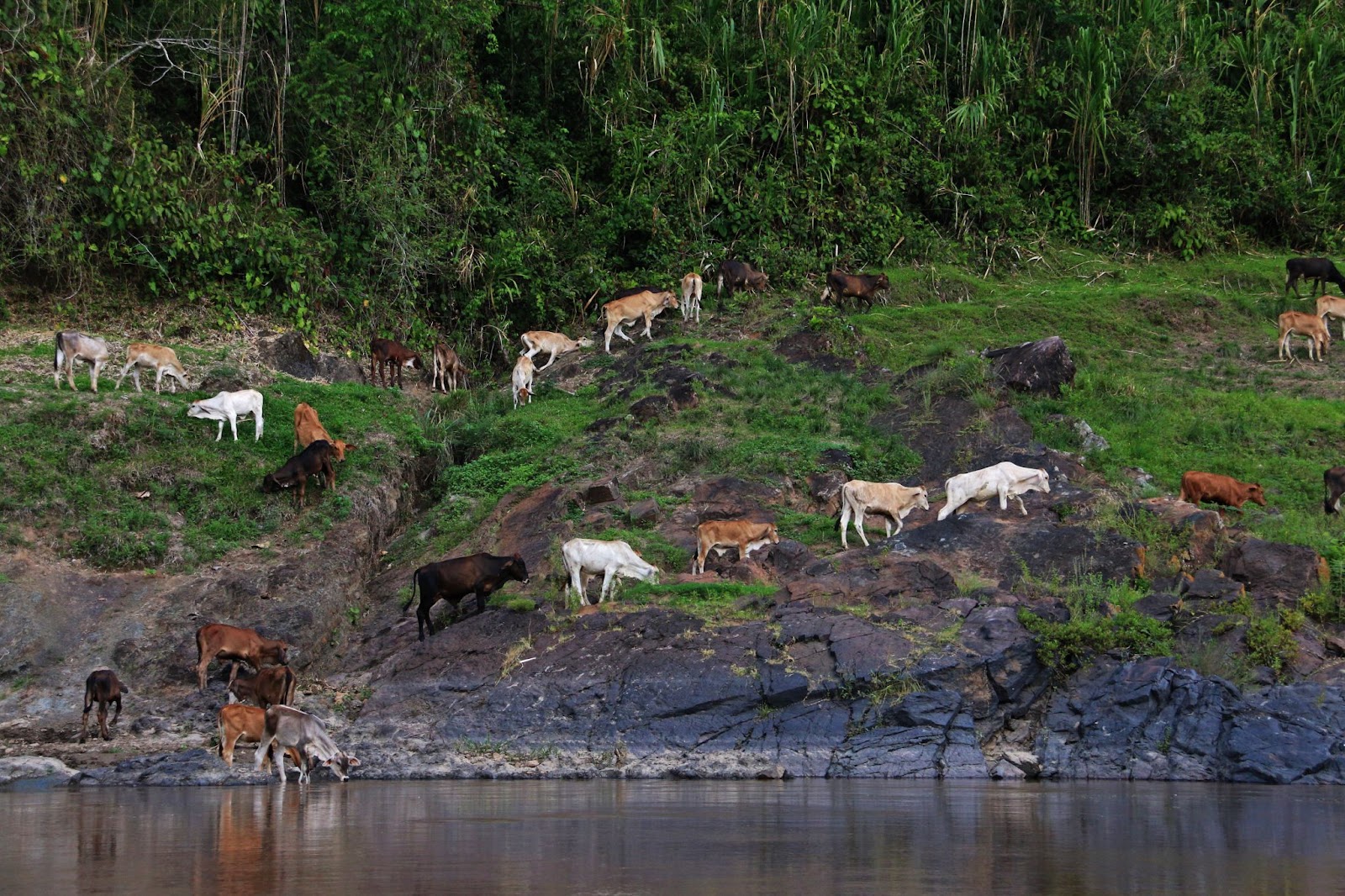 Illegal cattle ranching in Moskitia. Photo @WCS Mesoamérica and Western Caribbean
Illegal cattle ranching in Moskitia. Photo @WCS Mesoamérica and Western Caribbean
The "More Trees, Fewer Cows" strategy includes removing cattle from forest-damaging areas where they aren’t permitted, restoring degraded areas, and substituting illegal cattle with sustainable, equitable and profitable alternatives. Active participation from governments, businesses, and most importantly, Indigenous Peoples and local communities, is crucial for the success of this transformative strategy.
The initiative seeks to increase visibility and funding for territorial protection, secure policies and practices to ensure that beef production is deforestation-free, and support forest-compatible food and economic systems.
"Our ancestral leaders and elders have bequeathed us a territory filled with greatness and wealth, and we want to continue preserving it” said Elvis Antonio Greham, Moskitia Asla Takanka (MASTA) leader during the launch of the initiative.
Beef production has emerged as the leading cause of deforestation in Latin America, carrying devastating consequences for the security, biodiversity, and well-being of Indigenous and local communities. In the struggle for land use, Indigenous leaders often face acts of violence and forced eviction. Globally, livestock are responsible for 14.5% of greenhouse gas emissions, with 65% of these emissions coming from cattle.
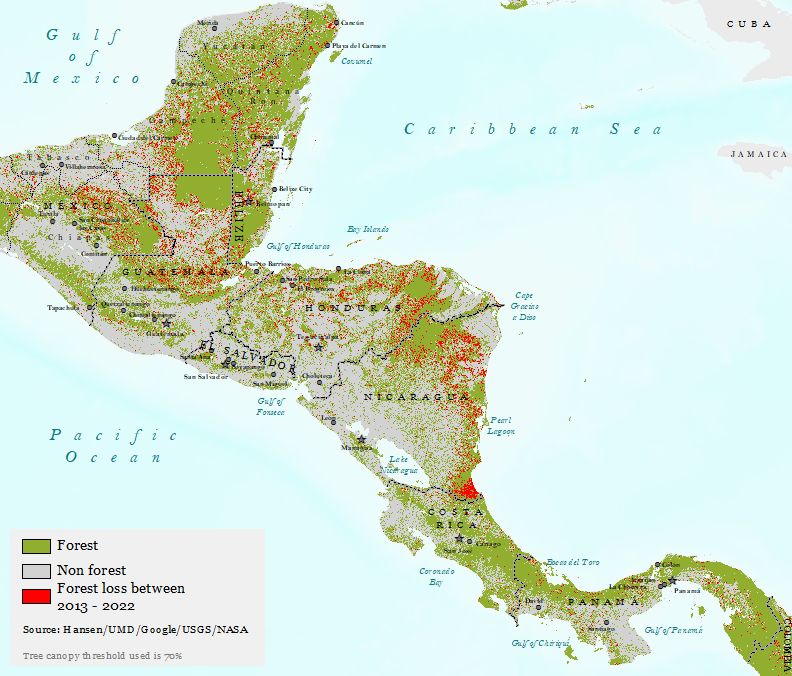 Map. Forest loss between 2013 and 2022 in the 5 Great Forests of Mesoamerica.
Map. Forest loss between 2013 and 2022 in the 5 Great Forests of Mesoamerica.
“As indigenous peoples, we are against illegal cattle ranching. We advocate for More Trees, Fewer Cows”, concluded Elvis Antonio Greham.
Preserving Mesoamerica’s 5 Great Forests, which span from Mexico to Colombia, is increasingly being seen as a bulwark against climate change and biodiversity loss. Forests, particularly high-integrity ones, absorb and store carbon, mitigate greenhouse gas emissions, regulate local climate, protect watersheds, and support biodiversity and local communities.
THE IMPACT AND SOLUTIONS IN DATA
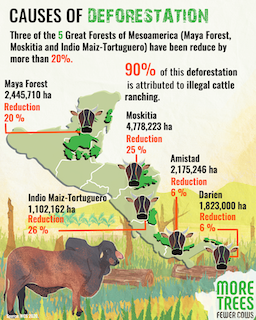
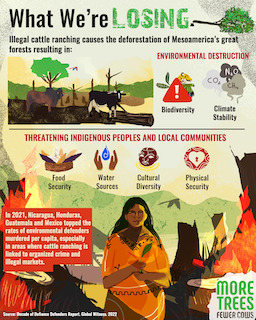
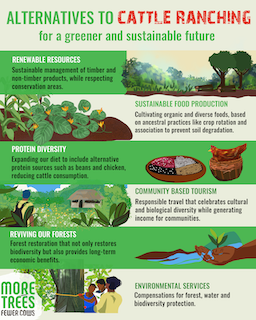
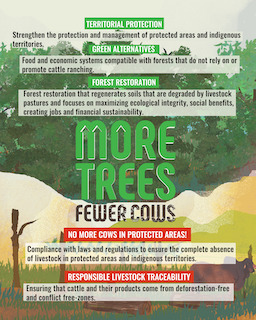
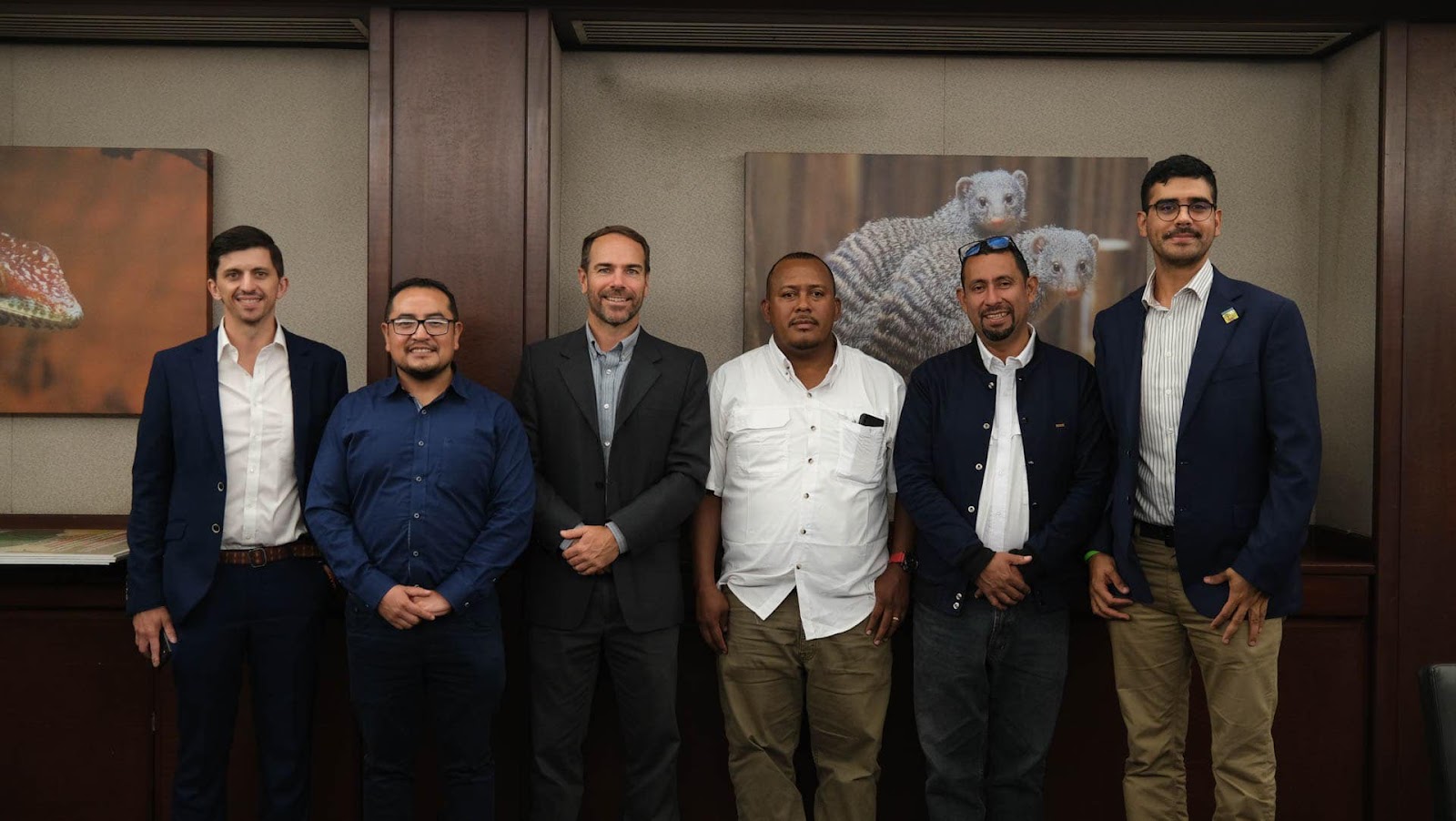
More Trees, Fewer Cows
"More Trees, Fewer Cows" is a call to action for all sectors of society: governments, businesses, communities, and citizens. Together, we can preserve the forests and protect the livelihoods of those who depend on them, ensuring a sustainable future for Mesoamerica and beyond. For more information about the campaign and its activities during New York Climate Week, visit: https://programs.wcs.org/5greatforests/en-us/More-Trees-Fewer-Cows-US
Wildlife Conservation Society (WCS)
WCS combines the power of its zoos and an aquarium in New York City and a Global Conservation Program in more than 50 countries to achieve its mission to save wildlife and wild places. WCS runs the world’s largest conservation field program, protecting more than 50 percent of Earth’s known biodiversity; in partnership with governments, Indigenous People, Local Communities, and the private sector. It’s four zoos and aquarium (the Bronx Zoo, Central Park Zoo, Queens Zoo, Prospect Park Zoo, and the New York Aquarium ) welcomes more than 3.5 million visitors each year, inspiring generations to care for nature. Founded in 1895 as the New York Zoological Society, the organization is led (as of June 1, 2023) by President and CEO Monica P. Medina. Visit: newsroom.wcs.org. Follow: @WCSNewsroom. For more information: +1 (347) 840-1242.
Re:wild
Re:wild protects and restores the wild. We have a singular and powerful focus: the wild as the most effective solution to the interconnected climate, biodiversity and human wellbeing crises. Founded by a group of renowned conservation scientists together with Leonardo DiCaprio, Re:wild is a force multiplier that brings together Indigenous peoples, local communities, influential leaders, nongovernmental organizations, governments, companies and the public to protect and rewild at the scale and speed we need. Learn more at rewild.org.
Alianza Mesoamericana de Pueblos y Bosques (AMPB)
The AMPB is a space for coordination and exchange of territorial authorities that administer or influence the main forest masses of Mesoamerica. Indigenous governments and community forestry organizations that in the Alliance seek to strengthen their own dialogue, focused on community management of their natural resources, jointly seeking to influence governments and international cooperation so that biodiversity conservation strategies and for the climate balance, appropriately integrate the rights and benefits of Indigenous Peoples and Forest Communities.